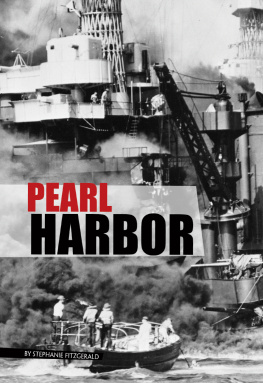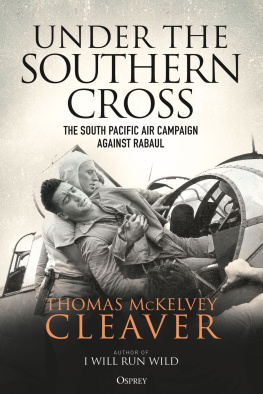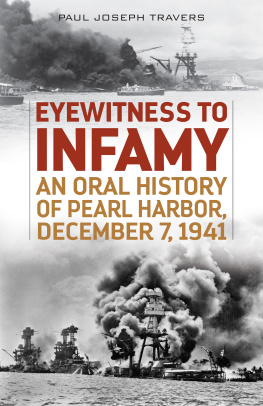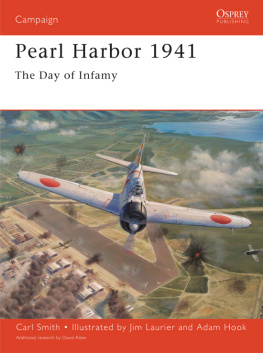Harry Turtledove
Days of Infamy
(Days of Infamy 1)
This is a work of fiction. Names, characters, places, and incidents are either the product of the authors Imagination or are used fictitiously, and any resemblance to actual persons, living or dead, business establishments, events or locales is entirely coincidental.
ON A GRAY, drizzly morning in the first week of March 1941, an automobile pulled up in front of the great iron gates of the Imperial Naval Staff College in Tokyo. The young commander who got out was short even by Japanese standards-he couldnt have been more than five feet three-and so slim he barely topped the hundred-pound mark. All the same, the two leading seamen on sentry duty at the gates (both of whom overtopped him by half a head) stiffened to attention at his approach.
Your papers, sir, if you please. The senior sentry slung his rifle so he could take them in his right hand.
The sentry studied them, nodded, and handed them back. Thank you, sir. All in order. He turned to his comrade. Open the gates for Commander Genda.
Hai, the second seaman said, and did.
Genda hurried to the eastern wing of the staff college. He hurried everywhere he went; he fairly burned with energy. He nearly slipped once on the wet pavement, but caught himself. The drizzle was not enough to wash the city soot from the red bricks of the building. Nothing short of sandblasting would have been.
Just inside the door to the east wing sat a petty officer with a logbook. Genda presented his papers again. The petty officer scanned them. Commander Genda to see Admiral Yamamoto, he wrote in the log, and, after a glance at the clock on the wall opposite him, the time. Please sign in, Commander, he said, offering Genda the pen.
Yes, yes. Genda was always impatient with formality and paperwork. He scrawled his name, then almost trotted down the hall till he came to the stairway. Despite his small size, he took the stairs to the third floor two at a time. He wasnt breathing hard when he came out; he might be little, but he was fit.
A captain on the telephone looked at him curiously as he went past the officers open door. Genda didnt meet the other mans eyes, or even notice his gaze. All the commanders energy focused on the meeting that lay ahead.
He knocked on the door. Come in. Admiral Yamamotos voice was deep and gruff.
Heart pounding, Genda did. He saluted the commander-in-chief of Japans Combined Fleet. Isoroku Yamamoto returned the courtesy. He was no taller than Genda, but there the physical resemblance between the two men ended. Yamamoto was broad-shouldered and barrel-chested: a wrestlers body, made for grappling with the foe. His gray hair was closely cropped above his broad, hard face. He had lost the first two fingers of his left hand in battle against the Russians at Tsushima in 1905, the year after Genda was born.
After waving Genda to a chair, he asked, Well, Commander, whats on your mind? He was no more a time-waster than Genda himself.
Genda licked his lips. Yamamoto could be-often strove to be-intimidating. But the younger man asked the question he had come to ask: Sir, if war against the United States comes, what do you think of our chances?
Yamamoto did not hesitate. I hope this war does not come. If I am told to fight regardless of the consequences, I shall run wild for the first six months or a year, but I have utterly no confidence for the second or third year. I hope we can endeavor to avoid a Japanese-American war.
You say this in spite of the blow we have planned against Pearl Harbor? Genda asked. He had been involved in preparing that blow from the beginning.
Admiral Yamamoto nodded heavily. I do. If we succeed there, the attack buys us time. Maybe it will buy us enough to take the Philippines and the Dutch East Indies and Malaya and form a defensive perimeter so we can hold what we have conquered. Maybe. I do not believe it myself, but maybe.
If the United States can still use the forward base in Hawaii, matters become more difficult for us, Genda observed. His thick, expressive eyebrows quirked upward as he spoke.
Much more difficult, Yamamoto agreed.
Well, then, Genda said, why do we limit ourselves to an air strike on Pearl Harbor? The Americans will rebuild, and then they will strike back at us.
Yamamoto nodded again. Every word of this is true. It is one of the arguments I used against the operation. Should hostilities break out between Japan and the United States, it would not be enough that we take Guam and the Philippines, nor even Hawaii and San Francisco. I wonder if our politicians have confidence as to the final outcome and are prepared to make the necessary sacrifices.
That went further than Commander Genda wanted. He said, May we return to discussing the Hawaii problem? Yamamotos smile was almost indulgent. He waved for Genda to go on. The younger man did: We should follow up on our strike at Pearl Harbor with a landing. If Hawaii is occupied, America will lose her best base. If we make this attack at all, we had better make it decisive.
Yamamoto sat and considered. His face showed nothing. He was an outstanding bridge and poker player. Genda could see why. Well, Commander, no one will ever accuse you of thinking small, Yamamoto said at last. Tell me-have you discussed this proposal with Rear Admiral Onishi?
That was exactly the question Genda wished he would not have asked. Yes, sir, I have, he answered unhappily.
And his view is?
His view is that, with our present strength, we cannot take the offensive in both the eastern and southern areas, Genda said, more unhappily still.
Rear Admiral Onishi is an airmans officer, Yamamoto said. He is also a very hard-driving, determined man. If he does not believe this can be done, his opinion carries considerable weight. How do you respond to his objections?
By saying that half measures will not do against the United States, sir, Genda replied. If we strike a blow that merely infuriates the enemy, what good is it? Less than none, in my opinion. If we strike, we must drive the sword home all the way to the hilt. Let the Americans worry about defending their West Coast. If they lose Hawaii, they cannot possibly think about striking us.
Again, Admiral Yamamoto showed nothing of what he was thinking. He asked, How many men do you suppose we would need to subdue Hawaii after the air strike?
If all goes well, they should be flat on their backs by then, Genda said. One division should be plenty-ten or fifteen thousand men.
No. Now Yamamoto shook his head. His eyes flashed angrily. Genda realized hed overlooked something. Yamamoto spelled it out for him: The Americans keep two divisions of infantry on Oahu. Even with air superiority, one of ours would not be enough to root them out. If this enterprise is to be attempted, it must not fail. You are absolutely right about that.
Genda didnt know whether to be ecstatic or apprehensive. The Navy could have pulled together a divisions worth of men from its own resources. For a force the size Yamamoto was talking about Will the Army cooperate with us, sir? Their eyes are on China, and on the south-the Philippines and the Dutch East Indies. And they never like to think of anything new. He spoke with a lifelong Navy mans scorn for the ground-pounders.
They might like to think about not having to fight the USA so soon, Yamamoto said. They might. And they might like to think of fighting the Americans from a position of much greater advantage. The advance in the south may be slower if we take this course. But I do believe you are right, Commander. When we hit the Americans, we can hold nothing back. Nothing! The reward for victory in the east could be victory everywhere, and where else have we any hope of finding that?


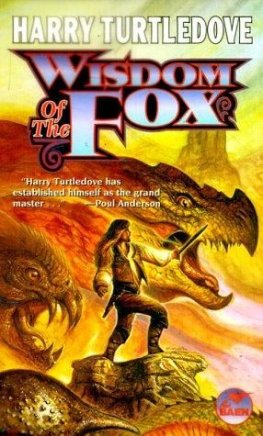
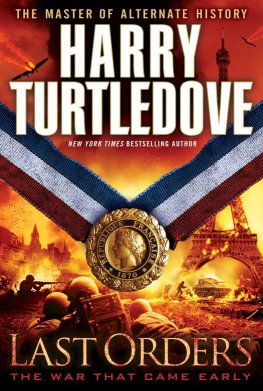
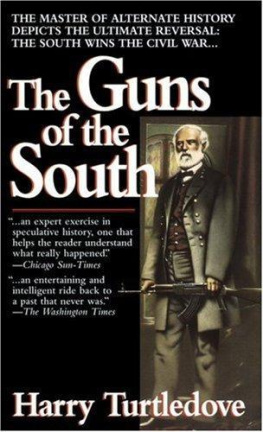
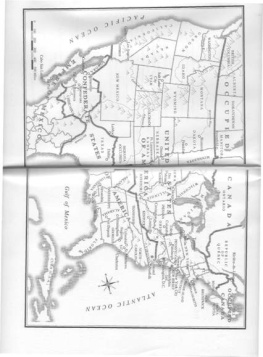
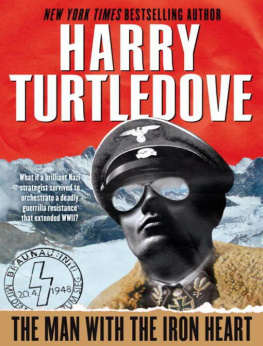
![Harry Turtledove - Worlds that werent : [novellas of alternate history]](/uploads/posts/book/79050/thumbs/harry-turtledove-worlds-that-weren-t-novellas.jpg)
